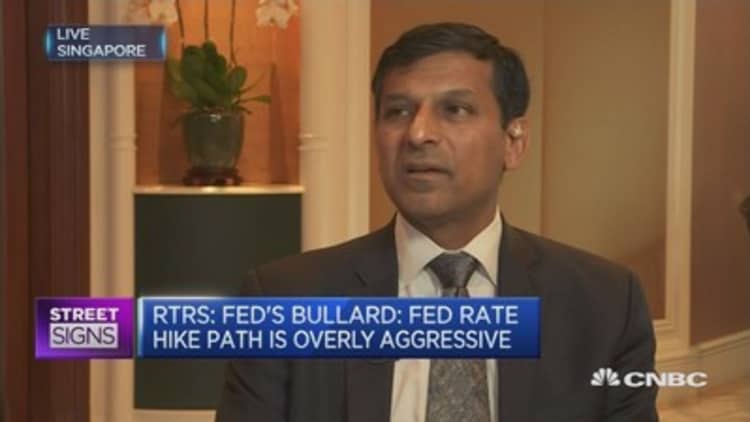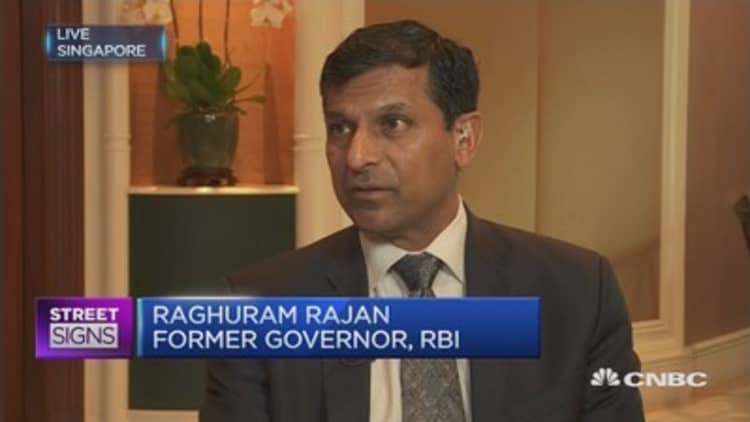
The world's banks have become safer since the global financial crisis but economic risks have spread elsewhere, Raghuram Rajan, the former governor of the Reserve Bank of India, told CNBC on Friday.
"Almost certainly lightening doesn't strike twice in the same place, probably because you take precaution," Rajan told CNBC's "Street Signs" in Singapore.
"Banks are in a much safer place than they were. The problem is the overall level of risk in the economy hasn't diminished considerably. If you make the banks safer, it has to go somewhere else," said Rajan, who is currently a professor of finance at the University of Chicago Booth School of Business.
Rajan said that there were aspects of the shadow financial system that were now "a little more worrying," particularly the high default rate on U.S. student loans.

The number of people who have defaulted on their federal student loans increased 17 percent from 2015 to 2016, according to a Consumer Federation of America analysis of U.S. Department of Education data.
Last year, 42.4 million Americans owed $1.3 trillion in federal student loans. More than 4.2 million borrowers were in default as of the end of 2016, up from 3.6 million in 2015. In all, 1.1 million more borrowers went into or re-entered default last year.
Rajan said the risks of student loan defaults were compounded by expectations the U.S. Federal Reserve would continue to increase interest rates.
"This is before interest rate hikes are substantial. And so what happens if some of them are floating rate and interest rates go up more," he said.
The interest rate on some private student loans can "float" in line with a benchmark interest rate. In the U.S., loans from the Federal government are linked using a formula to 10-year Treasurys.
So as Treasury yields rise, which they are almost certain to do as the Fed hikes rates and as Congress may borrow increased amounts to finance the Trump administration's policies, payments on new loans will rise as well.
Tightening liquidity could also impact other segments of the global markets, he added.
"The question is, as the global environment tightens, are those effects going to spread to markets that haven't yet experienced the consequences of the past," he asked. "There are also countries that dodged the financial crisis but have had very buoyant markets since then: housing markets in Australia, housing markets in Canada."
—Tom Anderson contributed to this article.


